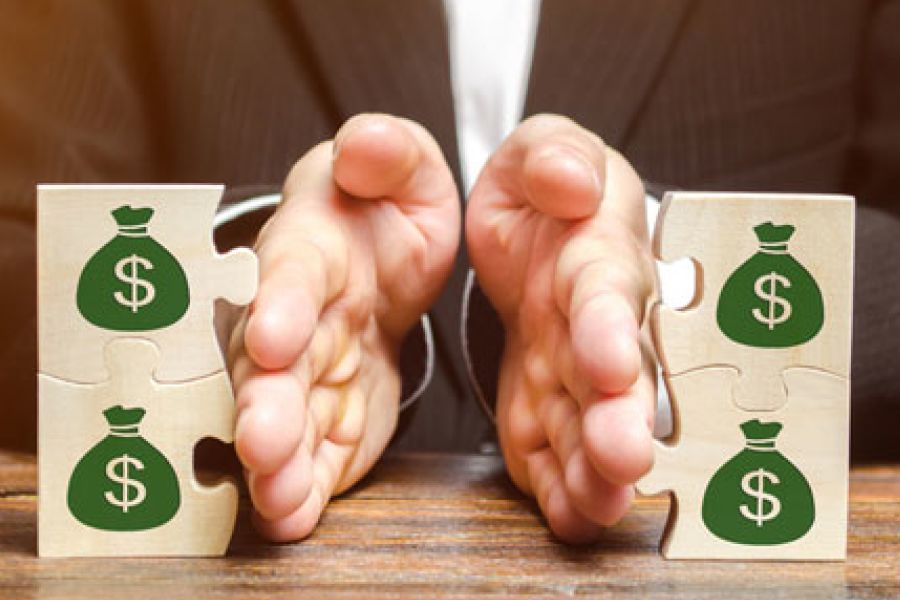Fraudulent behavior isn’t necessarily perpetuated by people hiding their identities. For example, legitimate customers sometimes use the credit card chargeback process to their advantage — and to the disadvantage of merchants. Others routinely abuse chargebacks to steal merchandise. Here’s how to protect your business from these types of “friendly” and sometimes dishonest fraud. Chargeback mechanics Friendly fraud pivots on a customer’s failure to communicate with a merchant. Instead of contacting a seller to discuss a problem with a good or service, some customers immediately dispute a charge with their bank or credit card company. They generally provide plausible reasons for the dispute and don’t mask their identify at any phase of the process. A chargeback takes time and effort to resolve. And if the bank or credit card...

Bad faith denials of claims by insurers are illegal, but some dishonest companies or agents attempt them anyway. It’s possible that just when you have the greatest need, you’ll find yourself out in the cold. Unfortunately, there aren’t a lot of great legal remedies. So it’s critical to avoid unreliable and fraudulent insurance coverage in the first place. Legal contract An insurance policy is a contract. The insured agrees to pay premiums and take reasonable steps to prevent injury or damage, and the insurer agrees to settle legitimate claims according to the policy’s terms. Not only is it good business practice for insurers to cover legitimate claims, but it’s illegal for them to deny them. There may be times when you and your insurer disagree about what’s covered...
The COVID-19 pandemic has put enormous pressure on global supply chains. As companies struggle to obtain the goods and materials they need, they may not pay as much attention to potential fraud signs. Unethical employees and organized crime gangs have only been too willing to take advantage of the situation. Consider conducting a targeted risk assessment that focuses on the changes that have occurred since the pandemic began. Although a targeted assessment isn’t a substitute for an all-encompassing review, it can help prevent certain threats from resulting in huge financial losses. Four items for review As part of your assessment, review: Changes in the operating landscape. As the pandemic took hold, both individual businesses and the larger marketplace changed. Some of those changes were readily apparent, such as...
Not all red flags lead to active occupational fraud schemes. But when fraud is occurring, it usually leaves traces — for example, accounting anomalies — for fraud experts and other knowledgeable people to find. Owners and executives, as well as rank-and-file workers, should be familiar with the signs of fraud and know when to call in a forensic accounting specialist. Take a closer look Dishonest employees may use anything from fictitious vendors to false invoices to cover up theft. To ferret out potential fraud, always investigate duplicate payments, out-of-sequence entries, unusual inventory adjustments and accounts that don’t properly balance. Transactions for amounts that appear too large or too small, or transactions that occur too often or too rarely also merit a closer look. An increase in the number...
As counterintuitive as it may seem, law firms aren’t immune to criminal activity. Because some firms place enormous pressure on attorneys to produce billable work, they may be particularly vulnerable to fraud. Your firm needs to know what to look for and how to protect itself from potential schemes perpetrated by partners, associates and support staff. Hold everyone to high standards A firm’s accounting department — payroll and accounts payable and receivable — is where fraud often occurs. But even trusted partners should adhere to your firm’s internal controls and fraud-prevention processes. All prospective employees, regardless of level, need to complete an employment application with written authorization permitting your firm to verify information provided. Then, call references and conduct background checks (or hire a service to do it)....
It’s not always easy being small. For one thing, small businesses (with fewer than 100 employees) experience higher occupational fraud losses: a median $150,000 vs. $140,000 for larger companies, according to the Association of Certified Fraud Examiners. That’s because they don’t always have the staffing or financial resources to implement fraud-prevention programs. Small businesses are also much more likely to fall victim to certain types of fraud — including check tampering and payroll schemes. Ask your advisor Private companies aren’t required to have annual audits, but your small business can still work with your CPA to determine where you might be at risk. He or she can train you to recognize the warning signs and help you reduce opportunities for fraud by, for example, segregating duties in...
Recently, the Federal Trade Commission (FTC) settled a lawsuit with a company it says made false and misleading claims about its consumer products. Specifically, the company advertised on its website and social media accounts that its goods were “Made in USA,” even though most of them were imported. This is a violation of the FTC Act, and if your business is making similar claims about foreign-made products, you too could find yourself in legal hot water. Patriotic promotion One of President Biden’s first actions in office was to sign an executive order requiring federal agencies to buy American goods (with at least 55% of their components U.S.-made) and services whenever possible. Many consumers and companies also prioritize buying U.S.-made goods. So it’s easy to understand why manufacturers,...
When Anna, the CEO of a small manufacturing company, received an anonymous report about fraud in the accounting department, she wasn’t sure how to act. After all, the complaint could be accurate, but there was also a chance that it wasn’t. She called her company’s attorney, who recommended a forensic accountant to investigate. He also suggested that she perform some preliminary interviews to gather facts — but to be careful not to interrogate employees. If you’re in a position similar to Anna’s, here’s how to conduct interviews before a fraud expert comes on the case. Investigation prep In advance of requesting any interviews, decide what information you’re looking for. Knowing what you want helps you get to the truth of the matter quickly and avoid getting sidetracked by...
Dividing a marital estate is rarely easy. But it’s made much harder if a divorcing spouse owns a private business and attempts to artificially deflate its profits or hide assets. If you or your attorney suspects this type of deception, engage a forensic accountant to investigate. Key questions When working on divorce cases, fraud experts ask several questions about private business interests. For example, does a spouse own a cash business that may have unreported income? Does the owner receive special (or excessive) perks or tax write-offs that affect the business’s profitability? Are numbers intentionally reported incorrectly to affect the business’s value? n addition, experts investigate whether the company has any subsidiaries or is part of any other business ventures. Sometimes, a business owner may be a silent...
All that glitters isn’t gold. This includes gold — and other precious metals, stones and jewels that are sometimes used to launder the “dirty” proceeds of criminal activities such as drug trafficking and terrorism. But several U.S. laws and regulations target these international money-laundering operations. Good as gold Precious metals, stones and jewels make ideal vehicles for money laundering for several reasons: Ownership and control. Precious metals are bearer instruments, meaning that like cash, the individual in possession of the precious metal owns and controls it. Readily transferable. There’s an active, global market that enables criminals to trade them. Because precious metals have many legitimate uses, criminals often can move them without attracting attention. Relatively stable. Although the price of precious metals fluctuates like those of any commodity, the value...











